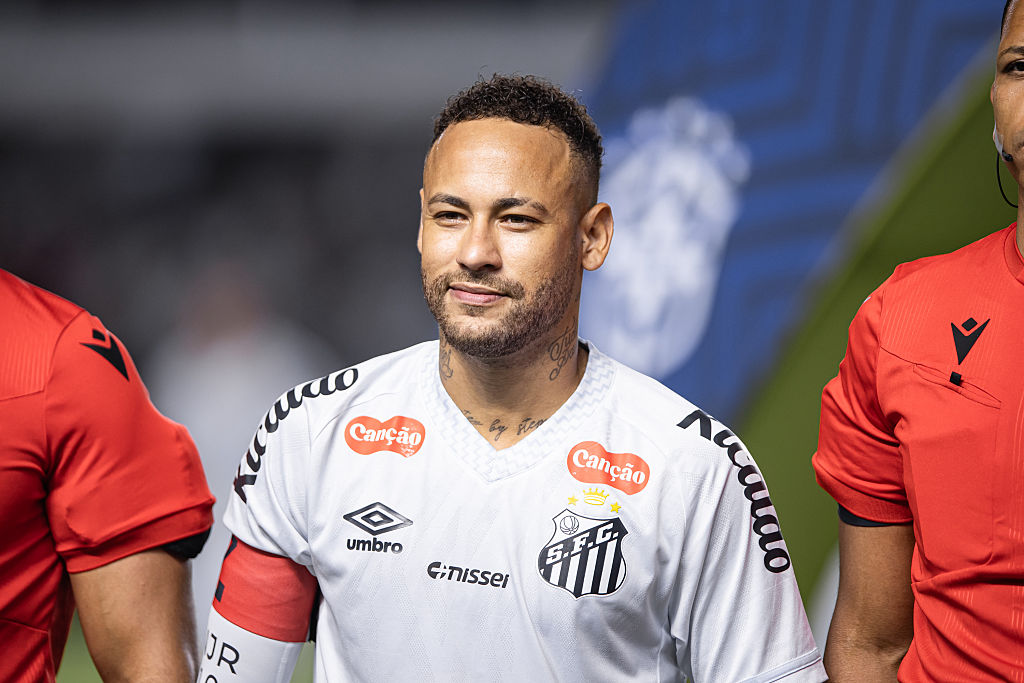Football Manager 2016: how to nurture a hot prospect into a true wonderkid
Learn more about the core elements of player development in Football Manager 2016 – how to nurture your prospective superstars to reach their full potential...
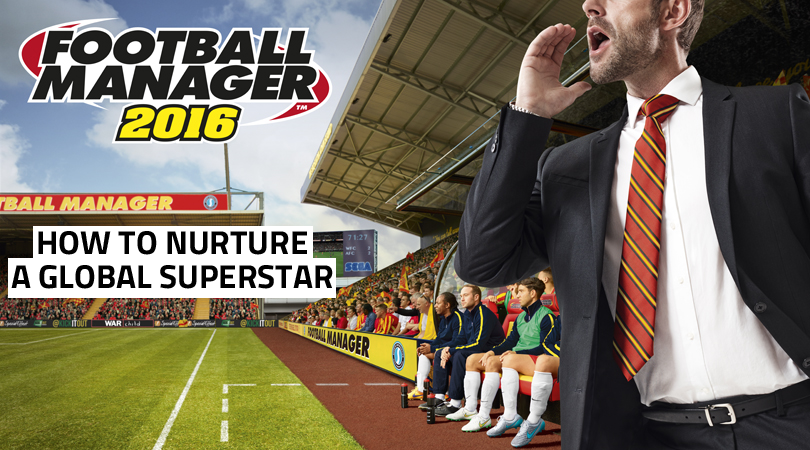
Technically speaking, developing a player means improving his Attributes, which are summed up as Current Ability. But only under the ideal circumstances a player can actually reach his Potential Ability (which can be revealed through Scouting).
The development will be heavily slowed down after a player reaches the age of 24. So if you want to nurture a wonderkid hoping that he’s going to fulfil his potential, you have to start working as early as you can.
Physical and Technical attributes can dramatically increase until a player is 24. They can still improve afterwards, but much slower and not by much. Only Mental Attributes can significantly improve after the player reaches that age.
Evaluating prospects
You have to work out how likely it is for the selected player to reach, let’s say 90% of his Potential Ability before he will be 24 years old
Scout the player thoroughly to get as much accurate information as you can. Make sure that the scout you assign to follow a player has a high Judging Player Potential attribute.
Now you need to evaluate if he’s worth signing (or keeping, in case you’re checking Coach Reports for one of your current youths). You have to work out how likely it is for the selected player to reach, let’s say 90% of his Potential Ability before he will be 24 years old, considering his Current Ability and Age.
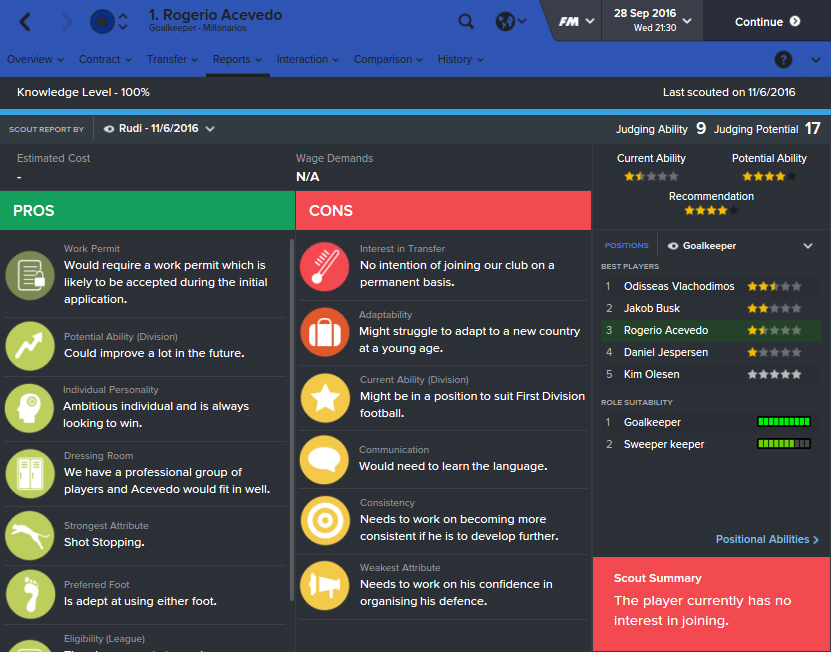
For example, you find a player who's 23 and has very good potential. But his current ability isn’t anywhere near that. It will be impossible for him to fulfil his potential as he can’t grow so much in such a short period of time; so in this case, it’s obviously a no go.
Get FourFourTwo Newsletter
The best features, fun and footballing quizzes, straight to your inbox every week.
Another important indicator of a player’s development can also be revealed through scouting – Injury Proneness. If your candidate is very susceptible to injuries then you’d rather drop him. The core factors of player development get jammed every time an athlete gets injured: Training and Match Experience.
Teaching the right mentality
After selecting the worthwhile candidates it’s time to check their Personality. This characteristic will tell you how professional and ambitious a player is. Personality is a key indicator of a player’s training work rate.
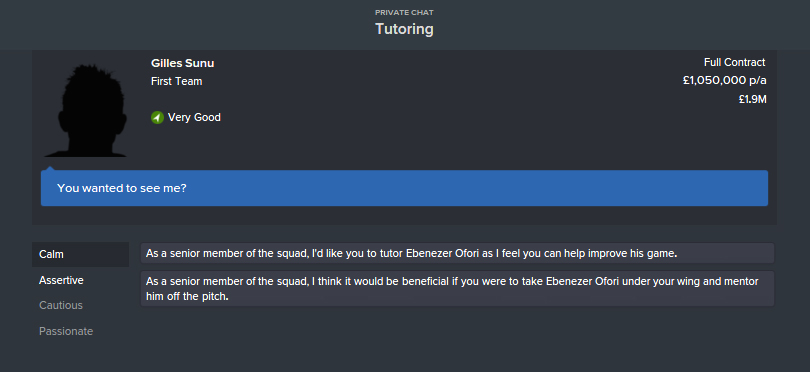
The Good: Model Citizen, Perfectionist, Resolute, Model Professional, Professional, Fairly Professional, Spirited, Very Ambitious, Fairly Ambitious, Ambitious, Driven, Determined, Fairly Determined, Charismatic Leader, Born Leader, Leader, Iron Willed and Resilient.
The Bad: Slack, Casual, Temperamental, Unambitious, Easily Discouraged, Low Determination, Spineless and Low Self-Belief.
And The Neutral: Jovial, Light Hearted, Devoted, Very Loyal, Loyal, Fairly Loyal, Honest, Sporting, Unsporting, Realist and Balanced.
Don’t worry if they haven’t got the right mentality when you sign them. You can fix that by asking older players with better personalities to tutor them
You should aim for the best possible personality for your youngsters. But don’t worry if they haven’t got the right mentality when you sign them. You can fix that by asking older players with better personalities to tutor them, using the second option ‘mentor off the pitch’.
Tutoring won't just determine a personality change, but the tutee will also inherit the tutor’s Determination attribute, so have that in mind before starting assignments. Remember that a youngster can only be tutored by older players who have a more important Squad Status assigned (and better Reputation).
Tip: You can use the search filter: Conditions – General – Personality when trying to find a suitable tutor in Football Manager 2016.
Staff and infrastructure
The rating of your Youth Facilities will affect the overall training quality of the lowest age group youth team at your club, while Training Facilities will influence the overall training quality of your Senior, Reserve and other youth squads (if applicable). Try to convince the board to upgrade them if necessary.
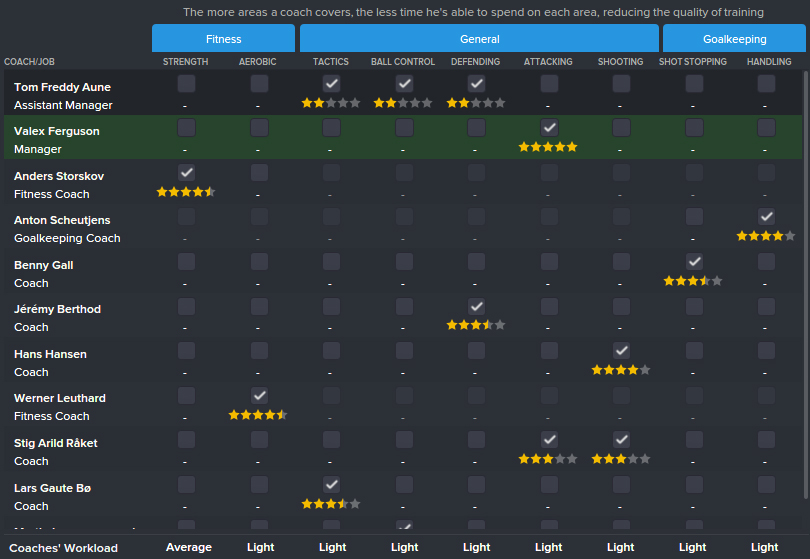
Your coaching staff will also have a big impact on your players’ development. It’s easy to understand that the rating of each coach should be as high as possible in order to get the desired results, but don’t limit yourself to that. Bear in mind, too, to keep the Coaches’ Workload on Average or Light, otherwise they won’t be able to give enough attention to every player and the quality of training will suffer.
Senior match experience
Keep the player in your senior squad if you are willing to give him regular playing time (at least 45 minutes every other match on average)
Game time is essential for the progress of any youngster. From time to time you will receive suggestions from your staff members indicating that a certain player needs more senior match experience to further develop.
Usually, you have to take action when a player becomes too old (18-19) to be allowed to play in your youngest youth squad. At this point you have to decide whether you are going to give him playing time in the senior squad or you’ll just loan him out.
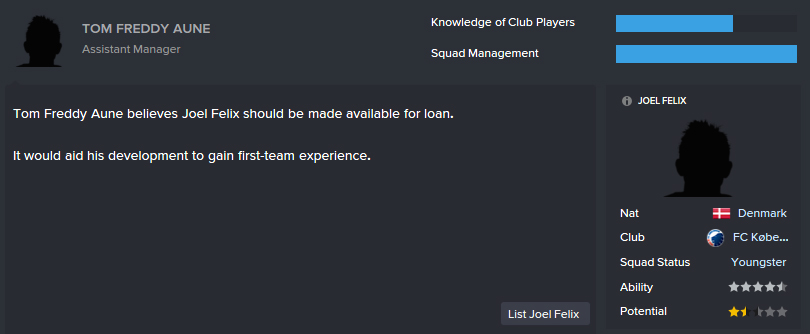
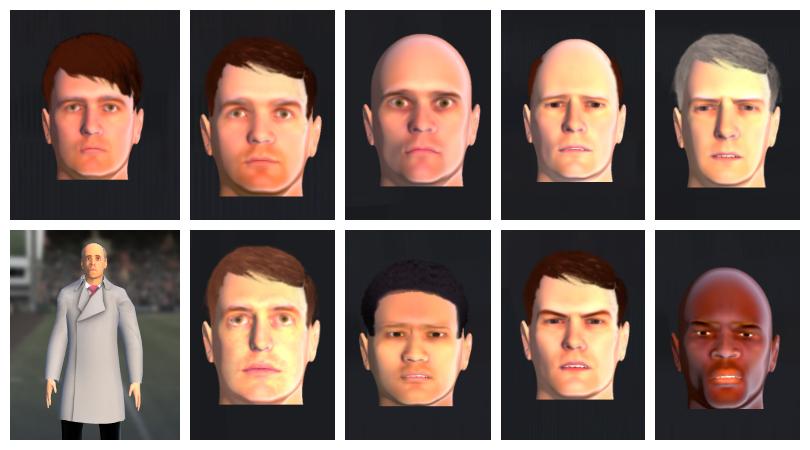
Senior match experience is more efficient when a youngster plays in a leaguethat’s rated as being suitable (or better) for his current level – check Coach Reports. On top of that, a player’s Average Rating in official matches will also have a big impact of his development.
Keep the player in your senior squad if you are willing to give him regular playing time (at least 45 minutes every other match on average). But if you think that he’s going to get more senior match experience elsewhere, consider loaning him to a club that plays in a comparable or better league and shares similar or more sophisticated training facilities. Reject any loan offers where the proposed Squad Status is less important than First Team. Don’t forget to add the Can Be Recalled clause to stay in control of the loaner’s situation.
